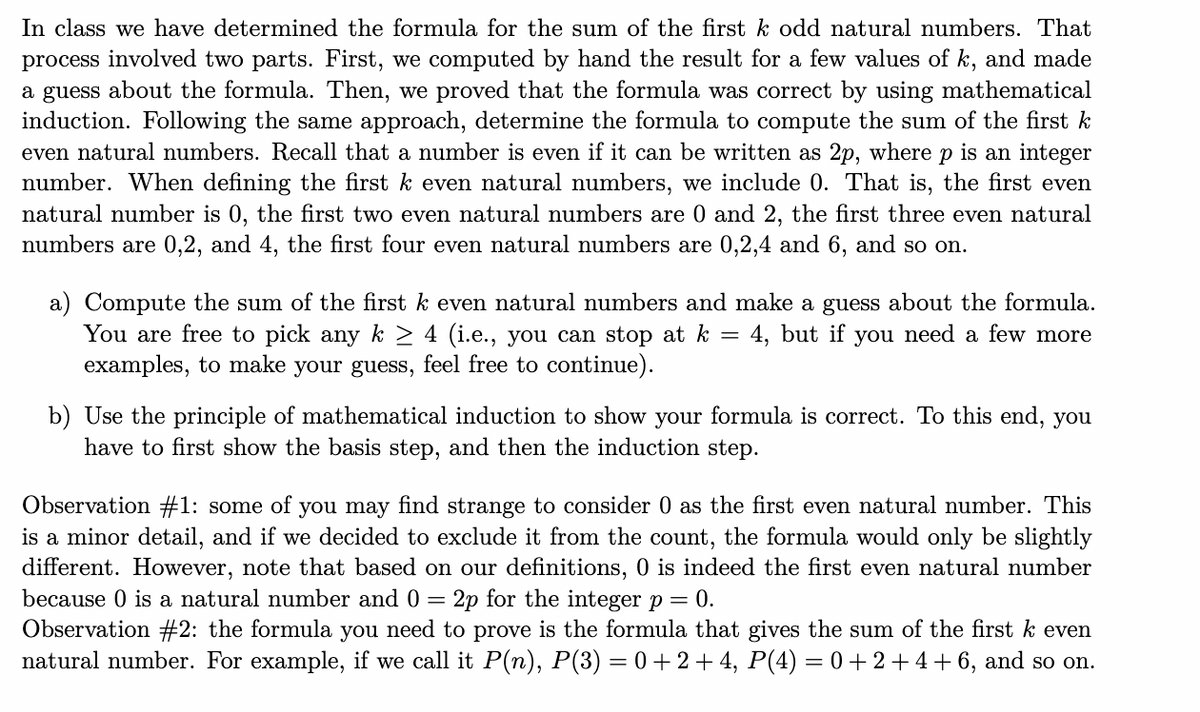
Extracted text: In class we have determined the formula for the sum of the first k odd natural numbers. That process involved two parts. First, we computed by hand the result for a few values of k, and made a guess about the formula. Then, we proved that the formula was correct by using mathematical induction. Following the same approach, determine the formula to compute the sum of the first k even natural numbers. Recall that a number is even if it can be written as 2p, where p is an integer number. When defining the first k even natural numbers, we include 0. That is, the first even natural number is 0, the first two even natural numbers are 0 and 2, the first three even natural numbers are 0,2, and 4, the first four even natural numbers are 0,2,4 and 6, and so on. a) Compute the sum of the first k even natural numbers and make a guess about the formula. You are free to pick any k > 4 (i.e., you can stop at k examples, to make your guess, feel free to continue). 4, but if you need a few more b) Use the principle of mathematical induction to show your formula is correct. To this end, you have to first show the basis step, and then the induction step. Observation #1: some of you may find strange to consider 0 as the first even natural number. This is a minor detail, and if we decided to exclude it from the count, the formula would only be slightly different. However, note that based on our definitions, 0 is indeed the first even natural number because 0 is a natural number and 0 = 2p for the integerp= 0. Observation #2: the formula you need to prove is the formula that gives the sum of the first natural number. For example, if we call it P(n), P(3) = 0+ 2 + 4, P(4) = 0 + 2+4+ 6, and so on. even